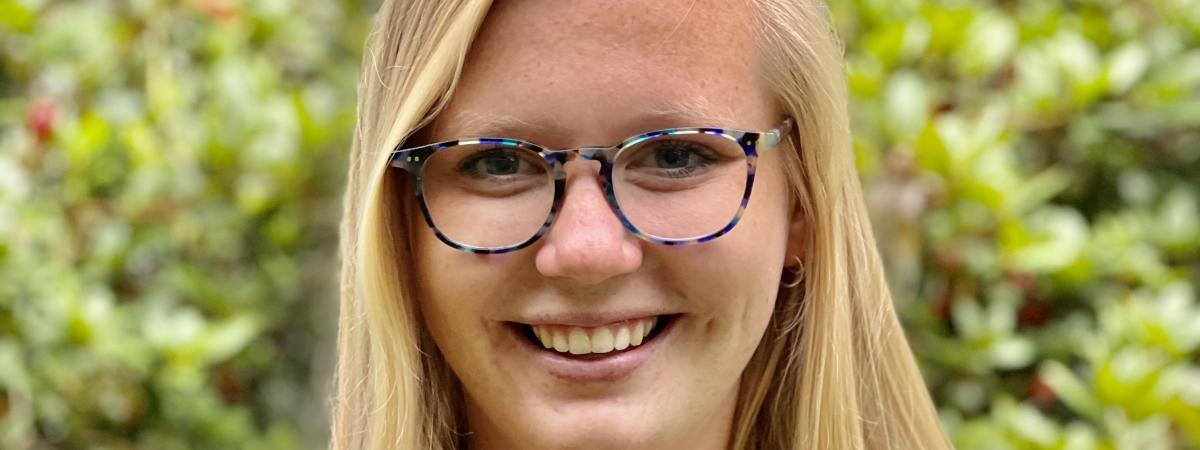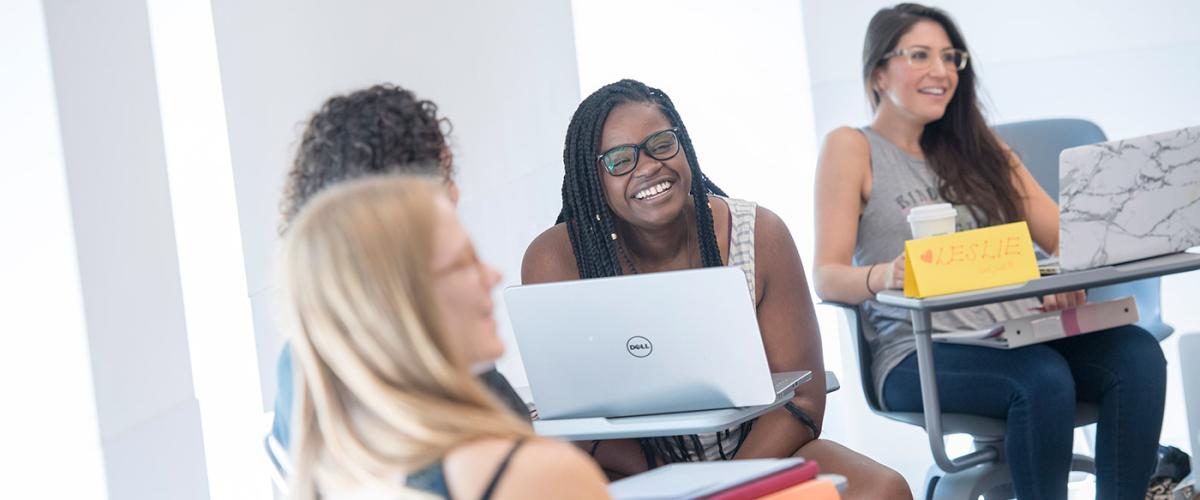Class Year: May 2024
Degree Program: MSW/MA bioethics and medical humanities
Concentration: Aging
Hometown: Acton, Massachusetts
Field Education Organization: Cleveland Clinic Palliative Care in Cleveland, Ohio
Before beginning at Case Western Reserve University, what were you doing?
I worked as a preschool teacher for three years.
Why did you choose CWRU/the Mandel School?
I decided to join the Mandel School as it is one of the few schools in the country that offers a MSW/Bioethics dual degree program.
Describe your field education practicum experience and any work/projects you have done.
In the Palliative Care department of the Cleveland Clinic, I work within a multidisciplinary team to provide care that seeks to manage symptoms of life-limiting illnesses/diseases, while focusing on the patient's quality of life. I am developing an intern training manual, researching and presenting on domestic violence between patients and their caregivers, and working on an interprofessional student team to complete a clinically-based project as part of Clinical Collaborative Practice.
What are you doing in field that you’re planning to bring with you into your career?
As I intend to pursue a career in end-of-life care as a social worker and a bioethicist, I will not only take the knowledge I learned while interning at Crossroads Hospice and Palliative Care in my first year, but also everything I learn during my time in the Cleveland Clinic's Palliative Care unit. As a future multidisciplinary professional, the Cleveland Clinic will provide me with the experience and ability to effectively work other alongside healthcare professionals to promote a patient's quality of life.
What is something you have learned during your practicum that you have found to be the most helpful in your social work journey?
I visited a home patient who no longer had use of her hands and who frequently needed tears to be wiped off from her cheeks. On my initial visit, I was sitting between the patient and her husband and an outside caregiver. As I was closest to both the patient and the box of tissues, I leaned over and wiped the tear off of the patient’s face, not thinking anything of this simple act. Months later during my last visit, I instinctively wiped more tears away. Suddenly the caregiver said "you wiped her tears the first day you came here too." And that’s when I realized that social workers try to move mountains, save the world, and cure all of the suffering, but at the end of the day those actions do not touch the heart like the small actions do. I also learned that I do not have to always know the answers to the “big questions” that arise at the end of life, as sometimes humility and kindness is comfort enough.
Who is someone you met during your field education that will change the way you practice?
During the course of my time working in hospice, I spent time with a gentleman who was 102 years old. While his body was failing him, he reminded me that this is not a sad time for him as he approaches his death. In fact, he told me that he felt ready to reunite with his wife in heaven after 35 years apart. This patient, candidly spoke about his greatest accomplishments, his previous near death experiences, but most of all, his gratitude for a life well lived. As this patient was blind and hard of hearing, he could not see or hear the sounds of my tears. Without knowing my emotions, he reminded me that dying does not have to be sad and can be seen as yet another adventure. In a job where I am intimately intertwined with the presence of death, it is difficult not to feel overwhelmed with sorrow. However, this patient allowed me to see that sadness does not always have a place at the bedside.
Describe any extracurricular activities you're involved with on- or off-campus.
I am the Mandel Council Executive Director.
What are you most looking forward to this semester?
As I have a huge interest in medicine, I am looking forward to working alongside an interprofessional team of medical professionals to see how a patient's symptoms can be managed from multiple angles. I am also eager to spend more time working collaboratively with families alongside their loved ones.
What do you hope to do with your degree?
I hope to work in a hospital setting, such as an Intensive Care Unit, as a medical social worker. Additionally, I would like to serve on an Ethics Committee at a hospital where I can be utilized as a consultant when ethical dilemmas related to healthcare arise.
What is your favorite thing about CWRU/the Mandel School?
I have loved the friendships that I have been able to make at the Mandel School. I have also really appreciated the unique opportunities I have been given to engage in both social work and medicine.
What is your favorite thing about Cleveland?
I really enjoy the people that live in Cleveland. Whether I am in the grocery store check-out line or in a small local shop, Cleveland residents are always eager to talk to one another.





